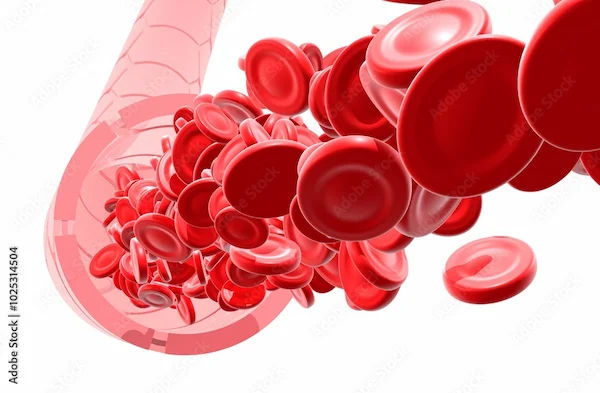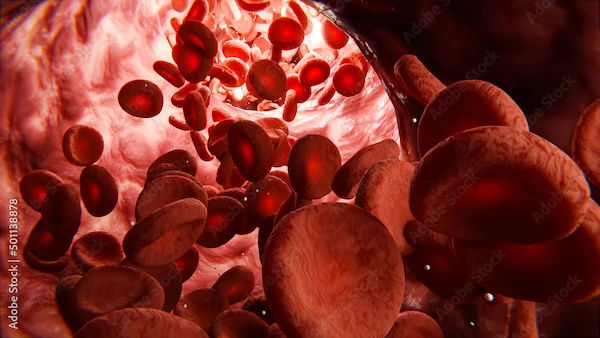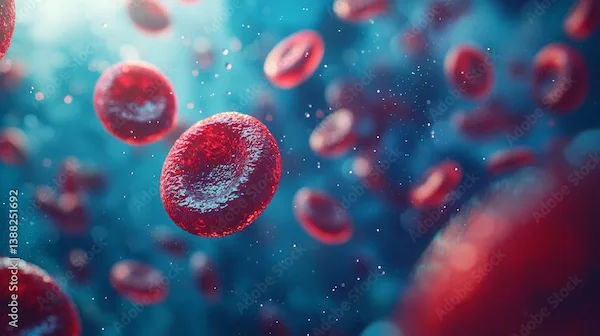How to Reduce Platelet Count?
Learn how to reduce platelet count, its types, symptoms, causes and ways to maintain health. This article explores efficient yet effective ways to treat a high platelet count.

Written by Dr.Sonia Bhatt
Last updated on 3rd Jul, 2025

Introduction
A high platelet count, also known as thrombocytosis, can be concerning as it may increase the risk of blood clots. Platelets are tiny blood cells that help in clotting, but when their numbers are too high, they can lead to complications like stroke or heart attack. If you’ve been diagnosed with a high platelet count, don’t worry—there are ways to manage it effectively.
Understanding Platelets and Thrombocytosis
Platelets (or thrombocytes) are produced in the bone marrow and play a crucial role in stopping bleeding by forming clots. A normal platelet count ranges between 150,000 to 450,000 platelets per microliter of blood. When the count exceeds this range, it is called thrombocytosis.
Types of Thrombocytosis
Primary (Essential) Thrombocytosis: This condition arises from a bone marrow disorder where the marrow produces an excessive number of platelets without a clear secondary cause.
Secondary (Reactive) Thrombocytosis: This type of thrombocytosis is triggered by an underlying medical condition such as an infection, ongoing inflammation, or iron deficiency, leading to an increase in platelet production.
Symptoms of High Platelet Count
Many people with high platelets may not experience symptoms. However, in some cases, the following signs may appear:
Headaches or dizziness: An elevated platelet count can sometimes affect blood flow, potentially leading to headaches or feelings of dizziness.
Easy bruising or bleeding (nosebleeds, gum bleeding): Paradoxically, despite having more platelets, their function might be impaired, resulting in easier bruising or bleeding from the nose or gums.
Numbness or tingling in hands/feet: Changes in blood flow due to high platelet levels can occasionally cause sensations of numbness or tingling in the extremities.
Weakness or fatigue: General feelings of weakness or unexplained fatigue can sometimes be associated with underlying blood disorders, including those with high platelet counts.
Enlarged spleen (in rare cases): In some rarer instances, the spleen may become enlarged as it works harder to manage the increased number of platelets.
If you notice these symptoms, consult a doctor for further evaluation.
Causes of High Platelet Count
Several factors can contribute to elevated platelet levels:
Infections or chronic inflammation (e.g., arthritis, tuberculosis): The body's response to infections or ongoing inflammation can stimulate the bone marrow to produce more platelets as part of the immune response.
Iron deficiency anemia: Paradoxically, a lack of iron can sometimes trigger the bone marrow to increase platelet production in an attempt to compensate for the anemia.
Recent surgery or trauma: Following significant surgery or injury, the body releases factors that can temporarily increase platelet production to aid in clotting and healing.
Certain cancers (e.g., leukemia, lymphoma): Some cancers, particularly those affecting the blood or bone marrow, can disrupt normal platelet production and lead to elevated counts.
Bone marrow disorders (e.g., essential thrombocythemia): Conditions originating in the bone marrow itself, like essential thrombocythemia, can cause the overproduction of platelets independent of other underlying conditions.
Consult Top Physician
How to Reduce Platelet Count Naturally
If your high platelet count is due to a temporary condition (like infection), it may resolve on its own. However, if it persists, your doctor may recommend medications or lifestyle changes. Here are some natural ways to help manage platelet levels:
Stay Hydrated: Adequate water intake (8-10 glasses daily) helps maintain proper blood viscosity, reducing the risk of clots.
Eat a Balanced Diet: Incorporate garlic, ginger, omega-3s, leafy greens (for vitamin K), and turmeric; limit sugar, processed foods, and alcohol to manage inflammation and platelet production.
Exercise Regularly: Moderate activity like walking, swimming, or yoga improves circulation and prevents clots; avoid intense exercise if bleeding is a concern.
Manage Stress: Reduce chronic stress through relaxation techniques (meditation, deep breathing, yoga) as it can influence blood cell production.
Quit Smoking: Smoking significantly increases the risk of blood clots; cessation can improve platelet levels and overall cardiovascular health.
Herbal Remedies (With Caution): Some herbs may help, but always consult a doctor before use, especially if taking blood-thinning medications.
Medical Treatments for High Platelet Count
If lifestyle changes aren’t enough, your doctor may suggest:
Low-dose aspirin: Your doctor might prescribe low-dose aspirin to help prevent blood clots.
Hydroxyurea or anagrelide: Medications like hydroxyurea or anagrelide may be recommended to directly reduce the bone marrow's production of platelets.
Therapeutic plateletpheresis: In severe cases, therapeutic plateletpheresis, a procedure to physically remove excess platelets from the blood, might be necessary.
When to See a Doctor?
Seek immediate medical attention if you experience:
Severe headaches or vision changes: These could indicate a serious complication related to blood clots or impaired blood flow in the brain or eyes, requiring urgent medical evaluation.
Chest pain or shortness of breath: These symptoms may signal a blood clot in the lungs (pulmonary embolism) or heart (heart attack), both of which are life-threatening emergencies.
Uncontrolled bleeding: Any bleeding that is difficult to stop, despite applying pressure, needs immediate medical attention as it could be a sign of a serious underlying condition or medication issue.
If you’ve been diagnosed with a high platelet count, regular monitoring is essential. Book a consultation with a hematologist through Apollo 24|7 for personalized care.
Conclusion
A high platelet count can be managed effectively with the right lifestyle changes and medical guidance. Stay hydrated, eat a balanced diet, exercise, and avoid stress to keep your platelets in check. If needed, consult a doctor for further treatment options. Schedule a blood test or doctor consultation on Apollo 24|7 for expert advice and stay healthy!
Consult Top physician
Consult Top Physician

Dr. Shesham Srinidhi
General Practitioner
5 Years • MD(physician)
Hyderabad
Apollo 24|7 Clinic, Hyderabad
(100+ Patients)

Dr. Liritha C
General Physician/ Internal Medicine Specialist
5 Years • MBBS, MD (GENERAL MEDICINE)
Hyderabad
Apollo 24|7 Clinic, Hyderabad

Dr. Lakshmi Sanjitha Kakani
General Physician/ Internal Medicine Specialist
6 Years • MBBS, MD (General Medicine)
Visakhapatnam
Apollo 24|7 Clinic - Andhra Pradesh, Visakhapatnam

Dr Divya Lekha Gunta
General Practitioner
10 Years • MBBS, MD (Pathology)
Visakhapatnam
Apollo 24|7 Clinic - Andhra Pradesh, Visakhapatnam

Dr. Mohammed Huzef Ul Arifeen
General Practitioner
3 Years • MBBS
Hyderabad
Apollo 24|7 Clinic - Telangana, Hyderabad
Consult Top physician

Dr. Shesham Srinidhi
General Practitioner
5 Years • MD(physician)
Hyderabad
Apollo 24|7 Clinic, Hyderabad
(100+ Patients)

Dr. Liritha C
General Physician/ Internal Medicine Specialist
5 Years • MBBS, MD (GENERAL MEDICINE)
Hyderabad
Apollo 24|7 Clinic, Hyderabad

Dr. Lakshmi Sanjitha Kakani
General Physician/ Internal Medicine Specialist
6 Years • MBBS, MD (General Medicine)
Visakhapatnam
Apollo 24|7 Clinic - Andhra Pradesh, Visakhapatnam

Dr Divya Lekha Gunta
General Practitioner
10 Years • MBBS, MD (Pathology)
Visakhapatnam
Apollo 24|7 Clinic - Andhra Pradesh, Visakhapatnam

Dr. Mohammed Huzef Ul Arifeen
General Practitioner
3 Years • MBBS
Hyderabad
Apollo 24|7 Clinic - Telangana, Hyderabad

